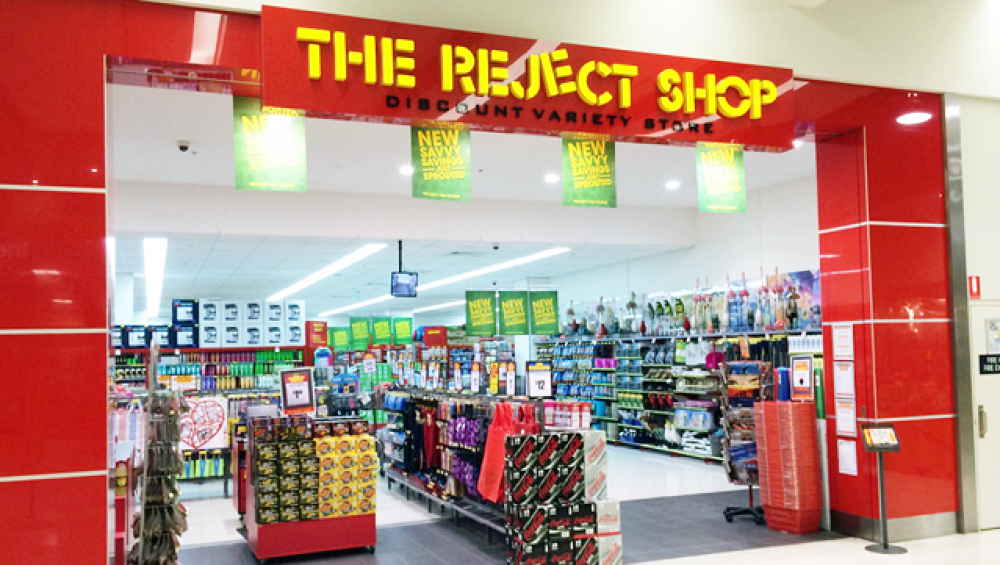
Australia’s beloved discount retail chain, The Reject Shop, is poised for a major transformation after Canadian discount juggernaut Dollarama launched a $259 million takeover bid — a move that could double the number of stores and reshape the nation's budget retail landscape.
The ASX-listed company’s board and major shareholders have endorsed the deal, which offers shareholders a 112% premium at $6.68 per share — more than double the recent trading price of $3.15.
Currently operating 393 stores nationwide, The Reject Shop could grow its network to 700 stores by 2034 under Dollarama’s ambitious expansion plans. The Canadian retail powerhouse, which operates over 1,600 stores in its home country and has a strong presence across Latin America, sees vast untapped potential in Australia’s value retail market.
Dollarama believes Australia remains an “under-penetrated discount retail market,” and aims to leverage its global scale, sourcing network, and operational expertise to fuel The Reject Shop’s growth.
“The Reject Shop is the only pure-play discount retailer with national scale in Australia,” Dollarama’s CEO Neil Rossy said. “We see tremendous opportunity here and intend to bring best-in-class merchandising and lower prices to Aussie shoppers.”
The takeover bid follows a recent half-year report from The Reject Shop that revealed plans to open seven new stores by the end of FY25, with a modest pipeline of 15 additional sites beyond that. Dollarama's plan represents a significant acceleration — nearly four times the growth rate of the past five years.
According to Queensland University of Technology retail expert Professor Gary Mortimer, the acquisition will be a win for consumers struggling with cost-of-living pressures.
“This move means more choice, better variety, and lower prices,” Mortimer said. “Dollarama’s global buying power will allow The Reject Shop to broaden its product range and sharpen its price point — especially for everyday items like shampoo, snacks, and pantry staples.”
Mortimer added that The Reject Shop’s low-cost grocery and household offerings could see more Australians “cross-shopping” between discount chains such as Kmart, Aldi, and now, a revitalized Reject Shop.
Despite the bold growth strategy, experts warn that real estate availability could be a hurdle. The Reject Shop typically seeks store spaces between 580 to 650 sqm with a minimum 14-metre frontage — a size not always readily available in high-traffic shopping precincts.
“There’s commercial real estate available, but not always in the right size or location,” Mortimer explained. “The recent downsizing of brands like Rivers and Noni B might open up some possibilities, but scaling to 700 stores won’t be easy.”
The Reject Shop was founded in 1981 by Ron Hall and John Shuster, beginning as a clearance store for seconds and discontinued stock in Melbourne’s South Yarra. Today, the company employs over 5,000 Australians and holds the title of Australia’s largest discount retailer.
Its stock market journey has seen highs and lows — floating at $2 a share in 2004, soaring to $18 in 2010, and settling back around $3.15 before Dollarama's offer.
Dollarama, too, has a storied history, tracing its roots back to 1910 through founder Salim Rossy. The company’s $1-per-item model was launched in the 1990s and has since evolved into a flexible pricing model capped at $5, broadening its appeal and product offering.
Pending shareholder approval, the deal could mark a new era for value-focused retail in Australia — one with more stores, better bargains, and stiffer competition for existing players.
While Kmart and Aldi may not be losing sleep just yet, shoppers across the nation may soon find a revitalized Reject Shop closer to home — stocked with new brands, international finds, and everyday essentials at unbeatable prices.